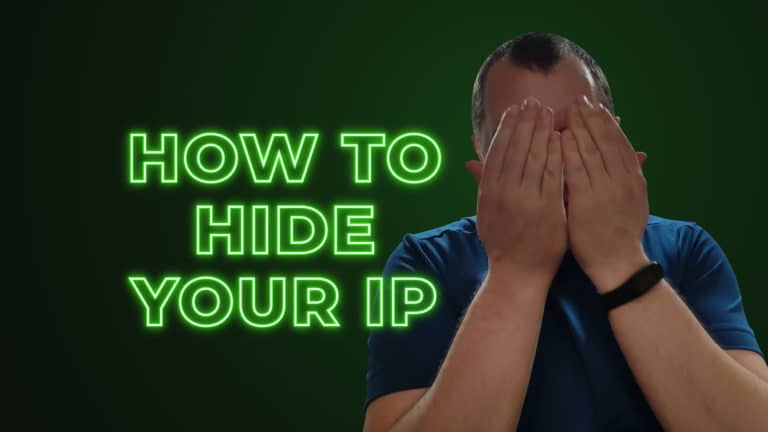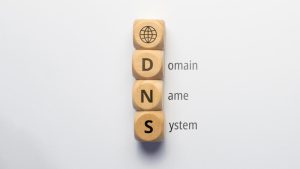So today we’re going to quickly overview how to hide your IP address. The basic stuff you need to know in order to get started if you wish to do this.
Most people have one (or several) of the following reasons for wanting to hide their IP address: downloading torrents without being tracked, removing geographic restrictions and censorship, or for more privacy and to prevent misuse of your personal information.
I also made a video about this on YouTube. If you found it interesting don’t forget to subscribe to the Techie Show channel! If video is not your thing, scroll on for the text version.
No matter of the reasoning behind you wanting to hide your IP address, I’ll quickly outline how you can achieve this:
Use a VPN to hide your IP address
This is probably the best and easiest way, at least in terms of speed. I’m saying it’s easy because most good VPN providers out there have easy to use software and apps. Look out for a fully encrypted connection and preferably no logging of your traffic when you’re opting for a VPN.
How does a VPN work? A simple way of explaining it is, when your pc or device connects to a VPN it acts as if it’s on the same local network as the VPN. And all your network traffic is sent over a secure and preferably encrypted connection to the VPN. You’ll also be able to use the internet as you were present at the VPN’s location. So if you’re browsing Netflix from Germany through a US-based VPN, Netflix will think you’re in the USA, where your VPN is located. Neat!
Use a Proxy to hide your IP address
Just like a VPN, a proxy acts as a middleman between your device and the internet. Websites and apps will see the IP address of the proxy, not your real IP address.
You might say a VPN is technically a type of proxy. But proxies usually lack the encryption and other security features offered by the VPN’s. Also, a lot of proxies to not include DNS traffic, so there is your request can still go to a third-party DNS server that can see your real IP address.
It’s worth noting than in most cases, when your proxy connection drops, your IP address can be exposed. So… not so secure.
Using TOR to hide your IP address
Short for The Onion Router, is a decentralized wordwide anonimity network operated by thousands of volunteers. This is the most secure method, as your trafic is encrypted and routed through a random sequence of nodes, which are sort of like proxy servers. The website you’re visiting can only see the ip address of the last server in the sequence, called the exit node.
While being secure, this method has one huge drawback: it can be painfully slow.
Please keep in mind that Tor is often associated with criminal activity because it can be used to access the darknet and other illicit websites. Some websites actually block connections from known Tor nodes and your ISP might not be too happy either. You have been warned.
About hiding your IP address with a dynamic IP
I left this last, because it often depends on your ISP and is not really the ideal sollution.
So, your ISP can usually offer you two types of IP. A static one, and a dynamic one. Thing is, the dynamic often times gets changed when you reboot your modem – sometimes you need to unplug it for a couple of minutes. But if you have a static address, well that won’t change so often (sometimes even static ones change to preserve the limited number of available IP addresses – IP recycling). Of course, you could also ask your ISP to change your IP address… but that isnt really a sollution sometimes.
Conclusions – how to do it properly
Do note, that you can never hide your IP address from your ISP. VPNs and proxies don’t literally replace your existing IP. They mask it so other computers and servers on the internet can’t see yours. But your real IP address is still there, connecting to your ISP. This is just how it works.
But fortunately, you can hide the content and destination of your internet activity with a VPN. The encryption I mentioned earlier prevents your ISP from seeing what information you send and receive. The only ones that can see your IP, what websites you are visiting, and what data is transmitted are you and your VPN provider. That’s why I recommend using VPNs that don’t store any logs of your activity.
How would I hide my IP address if I needed to?
Here are some tips:
- find a good and reputable VPN provider;
- make sure your VPN provider offers full encryption between your machine and its servers;
- make sure your VPN never logs activity;
- if you want to keep a line secure, never do anything you do daily. Don’t log in to Facebook using your account, don’t check your e-mail, etc.;
- try to change as many things as you can versus your day-to-day browsing: OS, browser window size, navigating behaviour, etc;
- if you are really paranoid, read about MAC addresses, and use another internet connection. But for privacy reasons I really don’t think you should go this far;
So that’s about it with the basics of hiding your IP. Stay private and stay safe!
note: I do not encourage any illegal activity online. But keeping yourself secured is a good practice.
note2: did you read my post about ports in networking?






